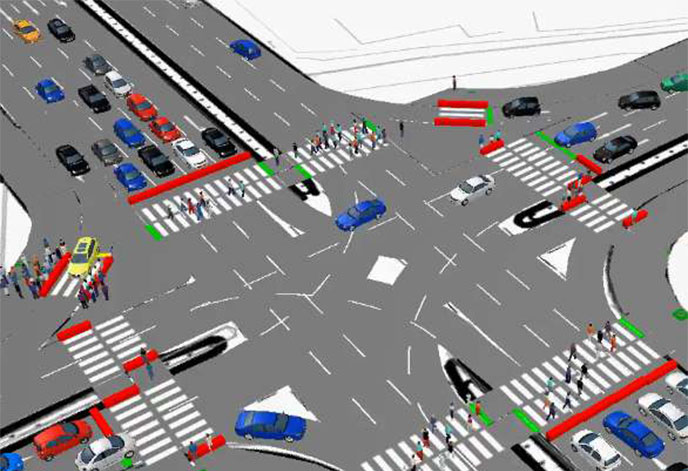
Radar | Mar 02,2019
Freight transport companies or owners who charge freight tariffs above the prevailing market price will be fined 100,000 Br, according to a new regulation issued by the Federal Transport Authority.
Effective as of June 11, 2020, the regulation is issued to regulate and administer penalties for offenders of road traffic laws imposed by the state of emergency.
The regulation, applicable throughout the duration of the state of emergency, aims to counter and control the spread of the Novel Coronavirus (COVID-19) and mitigate its impact on the sector by functioning in parallel with other state of emergency proclamations and regulations.
The transport regulation will deal with transport-related offences based on the emergency regulations. It further imposes administrative fines on all kinds of transportation service providers who violate the restrictions. This is despite the state of emergency provisions stating that these violations would entail criminal liability, since it was deemed burdensome to the criminal justice system.
Among the different types of offences listed in the regulation is overcharging on inter-state public transport fees exceeding the amount indicated, which entails a fine of 5,000 Br. A 1,500 Br fine has been placed on providing inter-city transport services during prohibited hours under the emergency law as well as boarding passengers in excess of what has been specified by the regulation.
A fine of 1,000 Br follows the failure to clean a vehicle providing public transport with disinfectants. The vehicle will also be suspended from operation until it complies with this requirement. Failure to use personal protective equipment like face masks requires operators to ban such passengers from boarding.
The regulation took a month to draft, according to Abdulber Shemsu, deputy director at the Authority.
“We're also working on COVID-19 safety measures to protect the drivers, their assistants and the community from the spread of the pandemic,” he said.
The Authority is only allowing drivers to cross the Djibouti border to reduce crowding at the border. This is in addition to testing their temperature when drivers pass through the gates at the Djibouti border, according to Abdulber.
The Transport Authority along with the Ministry of Health, the Ministry of Peace, the Immigration, Nationality & Vital Events Agency and the Federal Police have formed a task force entrusted with following up on the health status of drivers from their initial entry into the country until their arrival at their destinations.
Currently, there are 1.1 million cars in the country and 15,000 freight trucks.
While disrupting regular public transport service will bring a fine of 3,000 Br to the driver, the regulation places a higher fine of 10,000 Br on the association, company or owner of the vehicle along with license cancellation. Inland and cross-border freight order violations result in 3,000 Br and 5,000 Br fines for the drivers, respectively. The owners of the vehicles, company or association will have to pay 25,000 Br for inland and 75,000 Br for cross- border transport violations.
The heaviest fines for drivers are for disrupting or interrupting freight transport, which entails a payment of 15,000 Br on the driver, while the owner pays up to 50,000 Br and receives a revocation of the license.
The highest fee of 100,000 Br in the regulation falls on owners of vehicles that are found charging freight tariffs above from the set price or the prevailing market price. Similar trespasses on inland transportation will result in half the fines for owners and 7,000 Br for the drivers.
Issuing such regulations will aid and guide the logistics sector, according to Shiwaye Mersha, a lecturer in the department of Urban Transport Management at Kotebe Metropolitan University. However, the expert advises that creating awareness for the drivers, associations, companies and owners should come before implementation.
“Monitoring and controlling its implementation and maintaining its specific purpose is the major thing,” she said. “It needs careful supervision, because this sector is the backbone of the economy."
PUBLISHED ON
Jul 10,2020 [ VOL
21 , NO
1054]

Radar | Mar 02,2019

Fortune News | Nov 27,2018

Fortune News | Oct 21,2024

Fortune News | Dec 08,2024

Radar | Dec 25,2021

Radar | Dec 08,2024

Radar | Jun 22,2019

Fortune News | Mar 30,2019

Radar | Sep 06,2020

Fortune News | Jun 21,2025

Dec 22 , 2024 . By TIZITA SHEWAFERAW
Charged with transforming colossal state-owned enterprises into modern and competitiv...

Aug 18 , 2024 . By AKSAH ITALO
Although predictable Yonas Zerihun's job in the ride-hailing service is not immune to...

Jul 28 , 2024 . By TIZITA SHEWAFERAW
Unhabitual, perhaps too many, Samuel Gebreyohannes, 38, used to occasionally enjoy a couple of beers at breakfast. However, he recently swit...

Jul 13 , 2024 . By AKSAH ITALO
Investors who rely on tractors, trucks, and field vehicles for commuting, transporting commodities, and f...

Jul 5 , 2025
Six years ago, Ethiopia was the darling of international liberal commentators. A year...

Jun 28 , 2025
Meseret Damtie, the assertive auditor general, has never been shy about naming names...

Jun 21 , 2025
A well-worn adage says, “Budget is not destiny, but it is direction.” Examining t...

Jun 14 , 2025
Yet again, the Horn of Africa is bracing for trouble. A region already frayed by wars...